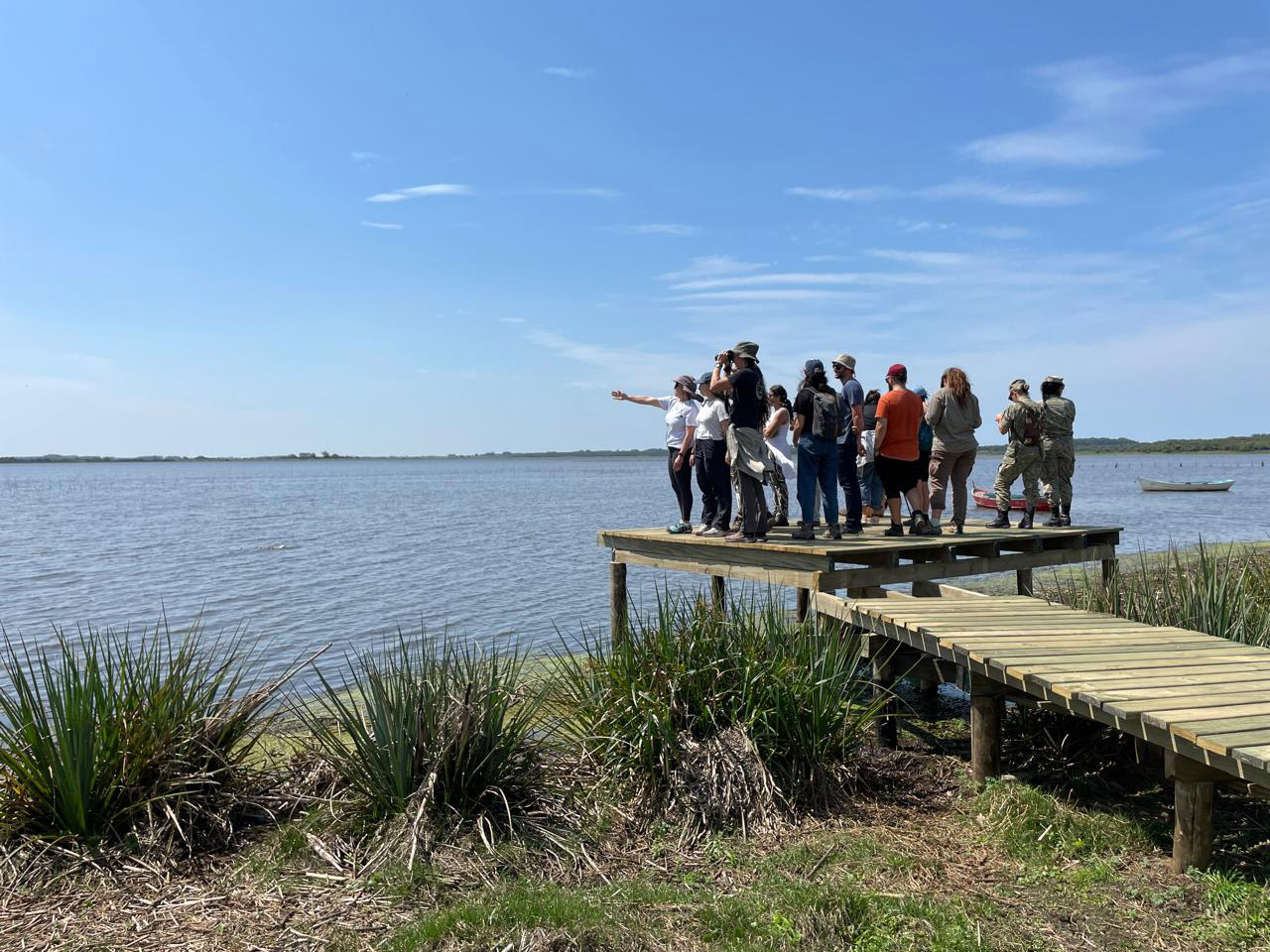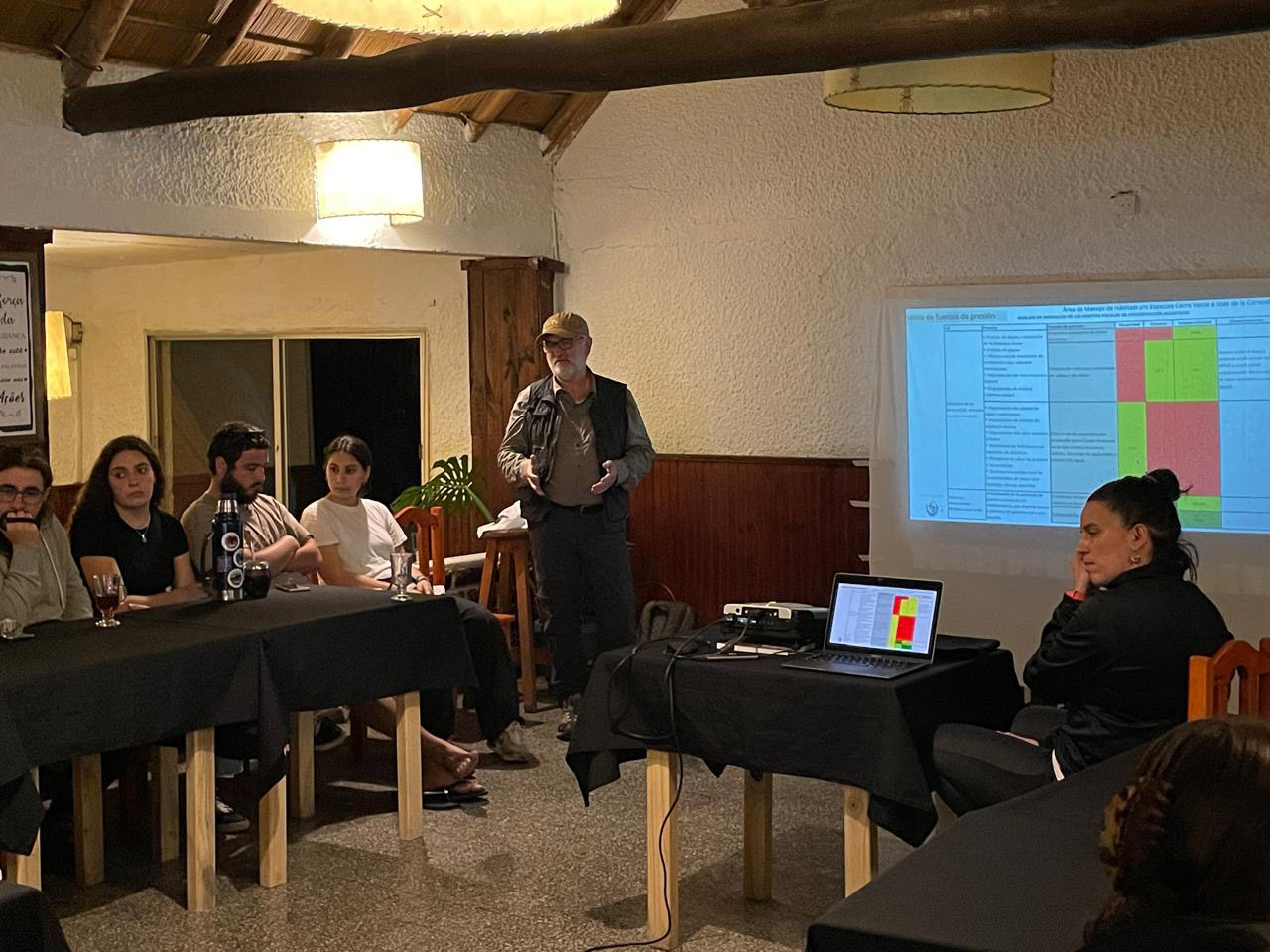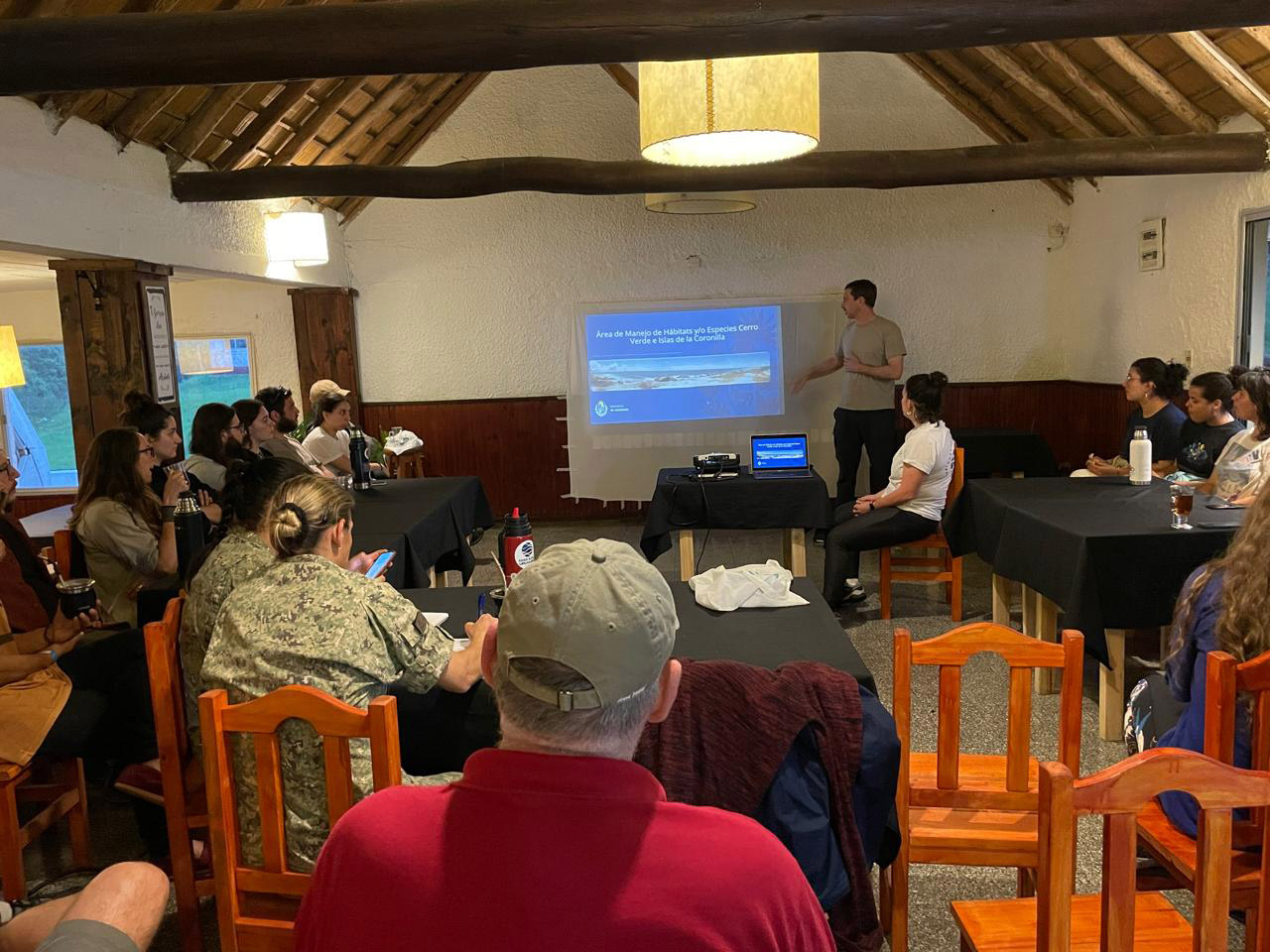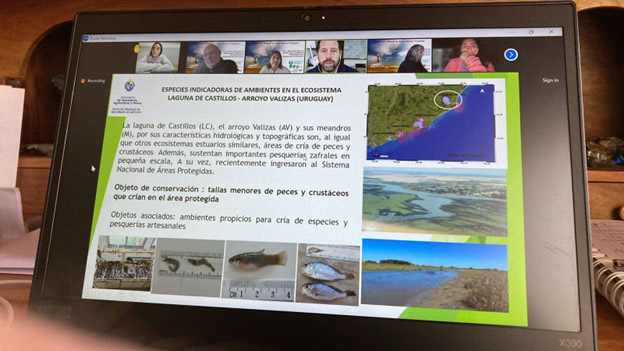
At the urging of the National System of Protected Areas and the Department of Coastal and Marine Management of the Ministry of Environment of the Oriental Republic of Uruguay (MA), and the national civil associations Vida Silvestre Uruguay and Karumbé, a training course was launched last August to train managers of coastal and marine protected areas.
Said course is carried out by the aforementioned organizations in the framework of the Southern Cone Marine Protected Areas Management School, an initiative that the Forum for the Conservation of the Patagonian Sea and Areas of Influence (the Forum) has been developing at the regional level since 2017.

On this occasion, the course, entitled “Training and capacity building for marine conservation in Uruguay”, was made possible thanks to the collaborative relationship between Vida Silvestre Uruguay and Karumbé – Uruguayan organizations that are members of the Forum – and the Ministry, and the financial support of the Southern Cone Wildlife Conservation Society (WCS) and Blue Nature Alliance.
Twenty-six Uruguayan professionals are participating in the course: 7 from the Ministry of Environment, 2 from the National Army, 2 from the National Directorate of Aquatic Resources (DINARA), 1 from the Oceanography, Hydrography and Meteorology Service of the Navy (SOHMA), 3 from the University of the Oriental Republic of Uruguay (UDELAR), 9 from Karumbé and 1 from Vida Silvestre Uruguay. The objective of these sessions is to provide knowledge and practical tools that will allow attendees to achieve effective planning and management of marine protected areas (MPAs) in Uruguay.
The course is taught by Stanley Arguedas Mora and Soledad de Bustos in hybrid mode, with synchronous virtual classes and a classroom module, which was held at Santa Teresa Park, in Rocha, Uruguay. Alejandro Arias (Fundación Vida Silvestre Argentina), Alejandro Vila (Southern Cone WCS) and Gonzalo Bravo (CONICET-Argentina) also participated and shared with the participants examples of biodiversity monitoring in MPAs. The virtual classes are being developed through the platform of Aves Argentinas, an organization that is also part of the Forum.

The course consists of four modules: introductory planning theory, knowledge and simulated practice of planning tools, monitoring techniques and tools, and supervised practice of integrated application of planning and monitoring tools.
The management of marine protected areas must be demonstrably effective and efficient in meeting their conservation and sustainable resource use objectives. Good management of these marine areas generates environmental and economic benefits that can be crucial for coastal communities. Capacity building of the personnel in charge of the management and supervision of these areas is, in this sense, fundamental.
